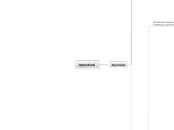Appraisal
Appraisals
Process
Define-apply different approaches-reconcile
Reports
Letter Form - Short Form -Narrative
Valuation
Principle of Substitution
Basis of 'Comparison' = Market Data = Substitution approach
Principle of Highest and Best use
Parcel of land
interim = current use
Site Approach
Principle of Conformity
Principle of Contribution
Remodel
Net effect on Income
Principle of Regression
Elements of Value
Demand
Utility
Scarcity
Transferability
Forces On Value
Governmental
Economic
Environmental and Physical Characteristics
Social Ideals
Additional Factors
Exposure
Topography
Orientation
Cost
cost equal value when improvements are new and Highest and Best Use
Market Price
Subject to financing conditions
Effective age.
Methods
Market Data Approach = Comparison = Comparative = Substitution Approaches
Appraise Amenities
Unit of Comparison
single family home
entire property
Rental Schedules
Features
Adjust value by subtracting value of the feature from the sales price of comparable
Cost Approach
Replacement Cost =
Estimate value of land
Front Foot Value
Cost / foot or Acre
Estimate Replacement Cost of Improvement
Cubic Foot
Warehouse
Square Foot
Exterior Dimension
Quantity Survey
detailed estimate = builders
Unit in Place
Subtract accrued depreciation
Obsolescence
External
Taxes, zoning
Social or Economic changes
Poor Sewer System
Airport Noise
Changes Supply and Demand
Nonconforming improvements near property
Noxious fumes
Internal
Poor Design
Old Kitchen
Old Heating
One car Garage
Changes in Construction Styles
Conditions
Curable
Incurable
Physical Deterioration
Wear and Tear
Deferred Maintenance
Add Value of Land
Specific Purpose Building
Capitalization Approach
Present Worth of future benefits
V = I/R
Calculate Annual Net Income
Economic Rent - Vacancies - taxes - insurance - utilities - reserves
Calculate Cap Rate
Comparison
Band of Investments
Summation
Gross Multiplier Approach
Sales Price of Comparable / Gross Monthly Income
Site Analysis not as important
